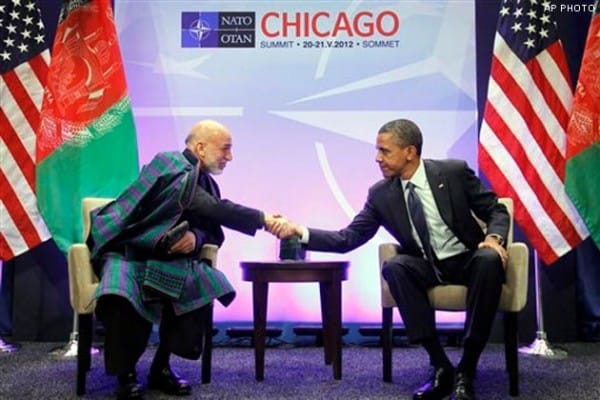Cost of Aid in Afghanistan to Increase After US Withdrawal


For many Americans the cost of continued military presence in Afghanistan greatly outweighs the benefits, yet the withdrawal of American forces scheduled for 2014 has various organizations warning of imminent financial issues facing Afghanistan.
The World Bank announced earlier this week an estimate of expected costs after foreign troops move out of the occupied country. Reuters broke the story after the World Bank announced its gloomy forecast as it predicts Afghanistan will face a $6-7 billion deficit in 2014. The money is needed in aid to facilitate the growth of the Afghan economy. This figure is on top of the expected $4.1 billion security forces bill important for keeping the peace after soldiers move out.
Afghanistan currently has a $17.1 billion dollar budget Ninety percent comes from foreign investment, while only 10% is generated by the Afghan economy. Not only would foreign institutions need to pay for the $7 billion dollar budget gap, but continue supplying $15.3 billion in aid to keep the Afghan budget in the black.
According to the report, Afghanistan will enter a recession in 2014 and require a further $6-7 billion dollars in aid.
"I have heard from Afghan government ministers, somewhere from $6 to 9 billion assistance is required,” said Afghan governor Noorullah Delawari earlier this week.
“I think, I see it at about $6-7 billion a year without military, it's just economic assistance, that should help us to go over, and continue our economic growth.”
Also according to Reuters, Delawari has requested that funds only be deposited through Afghan government entities and not through international organizations, which has left many foreign backers skeptical.
With the recent recessions in both Europe and the United States leaders were hoping to cut back on foreign aide and turn the money inwards. After Tuesday's report, it seems as if these large economy countries will need to tighten their belts and find the money.
Otherwise, where would this $7 billion dollar contribution come from? Despite economic troubles, the United States still holds the top position as the world’s largest Gross Domestic Product (GDP). It seems inevitable that the United States will supply the funding necessary keep Afghanistan from sliding into the forecasted recession.
The withdrawal in Afghanistan remains a top priority for many Americans, yet as Tuesday's report reveals, the absence of military forces will end only one chapter of our adventures in Central Asia. Continued involvement on a global level will likely cost American taxpayers billions, an aspect not many are mentioning this election cycle.



